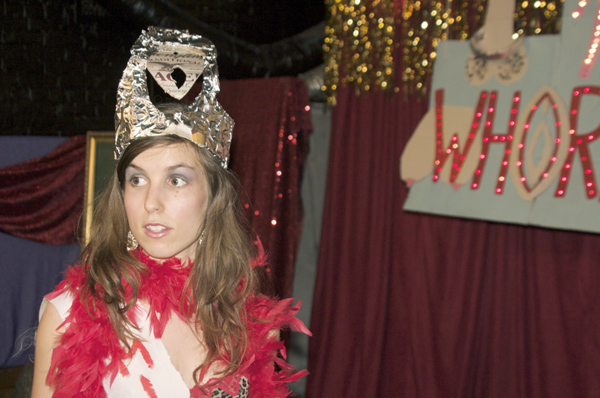|
Reviews of Recent Independent, Foreign, & Documentary Films in Theaters and DVD/Home Video

GABI ON THE ROOF IN JULY Every new micro-budget film I see leaves me with the urge to dig deep and find some unique reason it pushes the envelope, or why this is absolutely the one to see during its two-week, selected-city release. Like many filmgoers, I get excited by exclusivity and want to be the first to sing the praises of an obscure bit of pop culture most of my friends have only heard about. Lately, the technical ease by which indie features are made has widened the pool, yet somehow there’s a narrower field of those who have actually seen enough of them to speak on the subject. Not that indies are readily accessible for wider audiences, but it’s definitely never been like this. Those of us who keep up can sometimes feel a little too exclusive. However easy it is to get a film financed and produced these days, not everyone can be a filmmaker. Director/actor Lawrence Michael Levine and producer/actor Sophia Takal, though, can and are, and they have certainly done their homework. It wasn’t until they’d completed over six months of character work and improv that a script even began to form. For this reason, there’s hardly a character in Gabi on the Roof in July that isn’t precisely pegged, and from the solid base, this pair—who play a brother and sister at odds—build a funny, engaging, and memorable story. Gabi (Takal), on summer break from art school, sublets a room with older brother Sam (Levine) in his Brooklyn apartment. The two are instantly at each other’s throats over lifestyle differences. Sam, who recently turned 30, wrestles with notions of grown-up responsibility, while Gabi, closer to 20, calls herself a “post-fluxus feminist,” an uncompromising life-as-art anarchist, yet her projects all seem to involve her smoking pot and getting completely nude. When Sam is unwittingly affected by Gabi’s free-love attitude, he experiences a mid- (early?) life crisis and begins screwing around with his old flame behind his girlfriend’s back. Levine cleverly directs this subtle turning of the tables as Gabi’s confident front disintegrates and Sam’s fatherly wisdom proves more prudent than his moral discrepancies. This is really a film about the differences between 20 and 30. Gabi may be idealistic and uncompromising, but Sam has been through it all before and knows a little something about the prioritization of ideals that Gabi has yet to learn. It’s not as conservative as it sounds, though—Sam can still party. At least, I don’t want to believe it is. They are supposed to be Brooklyn hipsters, aren’t they? Perhaps the genuine attempt at discovering something unique about everyday people belies the middlebrow tendencies, but hipsters can be middlebrow, too, I suppose. Despite
skewering Gabi the “artist” as ineffective and half-hearted—more of a
stoner or a poser, even—her work’s certainly not as embarrassing as the
performance art videos in Lena Dunham’s Tiny Furniture, for
instance. I’ve said it before, and I’ll say it again, why is the art
itself always bad in films about art? If we’re to believe that Gabi is
an artist this talentless, I wonder at the overall message at work here,
especially coming from a pair of filmmaker/artists who have done such an
admirable job on the film and kept the material so close to home. From
this, I can’t tell if it’s more important to pursue your passions like
Gabi, or, like Sam, to just grow up. Personally, I’m sticking with Gabi.
Michael Lee
|

